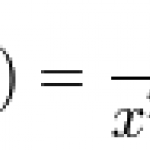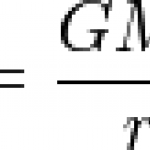The power output of the sun is often talked about in awe-inspiring terms. You'll be told that it's like a continuous thermonuclear blast, or that a tiny fraction of the tiny fraction of power that happens to hit the earth would support humanity's energy needs. It's all true. The light and heat from a campfire can make you uncomfortable from a few feet away, while the light from the sun can scorch deserts from almost a hundred million miles distant.
Let me quantify this, since it's what we physicists compulsively do. The total power output of the sun is something in the vicinity of 3.8 x…

There's some math here, I'd rate it at Calc 2 difficulty. If you don't know calculus, that's fine! The details will be obscure but I think you'll still appreciate the abstract beauty of the method.
Ok, pick a rapidly oscillating function. It doesn't really matter which, so as an example I'll make one up. It has no particular physical significance, but the method we're going to test out on it ends up being very useful in numerous physical problems. A lot of things oscillate, and many times we're after the overall average effect of those vibrations, not the details of the vibration itself…
Today I'm going to soapbox about something utterly inconsequential and only tangentially related to science. Apologies all around. It's the weekend though, so I trust you'll forgive a bit of a deviation from the usual!
The nominations for the Oscars are out, and generally it's a pretty mundane lot. Take the Best Picture nominees, for instance:
The Curious Case of Benjamin Button
Frost/Nixon
Milk
The Reader
Slumdog Millionaire
To be perfectly honest I've seen none of these. I'm sure they all have their charms, but no one I've talked to (and my friends have good taste) really painted them…
In the United States generally and to a much lesser extent in the UK and a few other countries you'll see some very old-school units of measurements. Miles, yards, pounds, fortnights, pints, gallons, and numerous others. Most of the rest of the world uses metric units, the primary variant of which is called SI units used almost universally in the physical sciences. You know, meters, kilograms, that sort of thing. My American patriotism aside, SI is of course a lot easier to work with. Kilometers to meters is a lot easier than fathoms to nautical miles (or whatever).
But it's not perfect…
Thermodynamics and statistical mechanics hold a bit of an odd place in the heart and mind of a physics student. On one hand it's one of the few subjects with truly universal applicability. No matter if you work in galaxy clusters, nuclear theory, experimental solid state, or anything else the concepts of those disciplines are going to assert themselves. Energy and entropy are everywhere. On the other hand it tends to be a tremendous pain in the neck to learn.
I'm in a stat mech class this semester, as you might guess. We do about two days worth of thermodynamics to keep up appearances,…
Reader Mike writes in with an interesting problem to work out. It runs thus:
You're in your car parked on the side of the road when you see your friend a distance d away, driving toward you at velocity v. You want to talk to him through your window, so what constant acceleration should you pick so that you're also traveling at v at the moment he reaches you?
The question as originally posed asked for the acceleration necessary to accomplish this in the minimum time, but in fact only one acceleration will cause him to catch up with you right as you both have the same speed. However long it…
I think personally he is a good man who loves his family and loves his country. And I think he made the best decisions that he could at times under some very difficult circumstances.
- Barack Obama on George W. Bush, 1/16/09
There's no shortage of shortcomings in the administration of the forty-third president. If your ideology is liberal, you can think of scores of disagreements with Mr. Bush ranging from mild disapproval to sputtering apoplexy. If your ideology is conservative (as mine is), well, you can think of scores of disagreements with Mr. Bush ranging from mild disapproval to…
There's an interesting post over at Sentient Developments about the simulation argument.
The SA essentially states that, given the potential for posthumans to create a vast number of ancestor simulations, we should probabilistically conclude that we are in a simulation rather than the deepest reality.
Most people give a little chuckle when they hear this argument for the first time. I've explained it to enough people now that I've come to expect it. The chuckle doesn't come about on account of the absurdity of the suggestion, it's more a chuckle of logical acknowledgment -- a reaction to the…
One of the most important mathematical concepts in physics and pure mathematics is continuity. There's a formal definition for it which for the moment isn't too relevant, but for our purposes we can think of it in terms of smoothness. Put your finger at a point on the graph, and if the function smoothly approaches from all directions with no instantaneous jumps or gaps and it's continuous at that point. But it can get kind of tricky. Here's one that's frequently presented in intro multivariable calculus classes (I first encountered it on page 904 of Stewart).
Its mug shot:
Ignore the…
When I was a young kid growing up in south Louisiana, my family would sometimes make day trips out to John C. Stennis Space Center. Located just over the border in Mississippi, it's a huge rocket testing facility in the middle of absolutely nowhere. It has to be. Rockets are LOUD. Isolated though it is, it's open to whatever members of the public wish to visit during visitor center operating hours.
One of the people who works at Stennis lived with me for three years in a dorm room the size of my current kitchen. Lack of space aside, college was tremendous fun and we were lucky enough to…
Poking around on the internet looking for interesting problems to assign the students I'm about to have this semester, I came across this one:
How much energy must a 450 kg cow expend in jumping over the moon?
Fig. 1: Buzz Cowdrin?
Now hints and solutions are available on the linked site, so what I'd like to do is just talk conceptually for a moment. Leaving aside for the moment the derivation of the equation, it will turn out that the energy required for a cow (or anything else) to reach a particular elevation is given by a particular potential energy equation:
G is the universal…
Doing a lot of driving this week, and since the interstates I'm driving (I-49 and I-10) are deathly boring, I have a lot of time to think. Being a physics nerd, I do a lot of thinking about physics. This trip the physics thing I'm thinking about is tire pressure.
Fig 1. A car. From the Wikipedia article "car". Research!
Tire pressure made a brief blip during the news a while back when it as a contributor to engine efficiency made a side appearance in the presidential election in regard to global warming. Climate gets done to death around here though, so let's talk about pressure as what…
Astrology has never so far as I know proposed a scientific mechanism by which the planets should affect the lives of us mortals. I suppose this is fair enough, you wouldn't expect magic to work by normal laws. If the position of Jupiter says you should spend the rest of the week face down in the mud, well there's no rule saying that Jupiter's going to wreck its vengeance on you with any of the four known fundamental forces.
Of course there's no indication that Jupiter or any other planet has anything to do with your personality at all by virtue of its position during your birth, or indeed…
I hope this doesn't count as biting the hand that feeds, but hey, dissent is supposed to be the highest form of patriotism or something. From my university:
COLLEGE STATION -- The chancellor of the Texas A&M University System wants to give bonuses worth up to $10,000 to some instructors, but so far, many aren't interested.
"I've never had so much trouble giving away a million dollars," Chancellor Mike McKinney said, laughing.
The voluntary pilot program being done at Texas A&M University along with the campuses in Prairie View and Kingsville will award bonuses from $2,500 to $10,000…
Whew! ScienceBlogs is back up. Mostly. There's been some kinks, but so far things are mostly working. No LaTeX yet, but I'm agitating for it vigorously. Especially for the comments. The ability to work with equations is something that no self-respecting science blog should be without. I'm hopeful that the process will be simplified soon, and that you can write your own equations as well.
While things are still getting squared away internally, let's tackle a simple question. What is science?
It's a question that has come up several times when the various ScienceBloggers chat in our…
As you've probably heard, ScienceBlogs is going to be silent for a day or two starting... 1pm today I think? I'm not sure, I don't pay attention very well at our board meetings. And by board meetings I mean whatever happens to get posted on the internal message board. But apparently we're upgrading the posting system (finally!) and that will help things run a lot more smoothly for us writers. I hear there's even an equation editor, which I hope is true. Right now I have to typeset in LaTeX, render to png, save, upload, and write the img tag. Some automation will be nice. Eventually I…
This one's a little of the beaten path for this site, since it's not physics or even anything I normally follow as a hobby. But along with science and many other things I'm a bit of a firearms enthusiast, and since guns are closely connected with hunting it probably wasn't unlikely that I'd come across this Livescience piece about the genetic implications of hunting.
The thesis is so simple as to be almost self-evident. Hunters tent to hunt for the largest and most impressive animals, especially when hunting seasons are short and bag limits are small.
This unnatural selection, a practice…
Reader Scott writes in with a good question that I've heard posed by several people in various places, because it really goes to the core of the counterintuitive nature of relativity.
Okay, let's assume I'm in a spacecraft moving at a speed of c-1 m/s. That's one m/s less than the speed of light. Would I be able to move from the back of the ship to the front at 1 m/s? Would I even be able to survive at that speed?
Here's my reply, extended a bit to include the relevant equations and go into a little more detail. The derivations will all wait until later:
Yes indeed. The question at issue is…
Over at Uncertain Principles, Chad is talking football. There's this pesky problem of spotting the ball at the end of the play. In a game where fractions of an inch can make or break the end result, too often the issue is determined by a more or less random guess by the referee of where the ball stopped. Instant replay has helped the issue, but not come anywhere close to fixing it. It's too imprecise and often made less useful because there's enormous football players diving for the ball and thus obscuring it from the cameras.
There's good suggestions. DGPS, radar, optical tracking, and…
I was out of town (again) this past weekend, hence the posting shortage. Why in the world is it so much harder to find time to post during a nominal between-semester-break? I dunno, but it seems to be true. Free time doesn't scale the way you'd like.
One of the fundamental skill sets a physicist or really just about any scientist needs is to understand how quantities change scale. This is especially true when things change scale at different rates. I first noticed this particular instance of scaling phenomena while sitting in traffic in the city of Houston, Texas whose map (via Google)…









